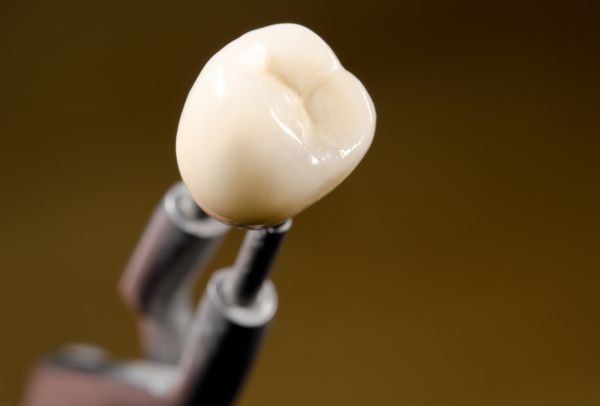How To Care for Porcelain Crowns

Luckily, in most cases of a tooth being damaged a dental crown can help in repairing the tooth so the natural tooth root is still intact.
The crown will be positioned over the root and keep any food or drink from irritating the area. However, keeping the crown in good condition is just as important as doing the same to your natural teeth.
In this article, we will cover what a dental crown is and how to properly care for it. Keeping good oral health and hygiene is just as important when having a dental crown as ever before.
What is a dental porcelain crown?
A dental crown is a type of cap that is positioned on a tooth that has become decayed or damaged. A porcelain crown is crafted using a type of moldable and colored material that can look almost exactly like a person’s natural teeth.
All in all, there are three main types of dental crowns, and porcelain crowns still continue to be the top choice by patients and their dentists.
How to keep porcelain dental crowns in good condition
Now that we have covered the basics of what a dental crown is and why it is used, we will give some helpful hints on how to care for a porcelain crown.
- The best way of getting the longest use of a dental crown, many times being for 30 years or longer, is by combining good practices by both visiting your dental professional two times per year and a great at-home dental hygiene routine
- To keep a good dental hygiene routine it is important that a person is sure to brush their teeth twice per day and floss daily. For people with dental crowns, avoiding hard or extremely sticky candies and food is important
- Another thing that many people may not think about before popping a piece in their mouth is gum. Chewing gum is not the best thing to chew on when you have a dental crown. It could cause damage or make it fall off
Foods to avoid to care for porcelain crowns
Along with keeping a good daily oral health routine, avoiding some types of food can be one of the best ways to keep porcelain dental crowns in the best condition possible. Although it can be easy to forget at the moment, memorizing the following items can help you avoid any accidental fractures or breaks.
The things that can break a porcelain crown include:
- Hard and sticky candies
- All kinds of nuts
- Hard, crunchy vegetables (such as carrots, celery or broccoli)
- Sticky desserts
- Chewing gum
Have more questions on caring for porcelain crowns?
If you have any additional questions about how to keep your porcelain crowns in the best condition possible, then contact us today. We are always excited to help guide our patients on how to keep their crowns in the best condition possible.
Give us a call today!
Request an appointment here: https://www.gledhilldental.com or call Gledhill Dental at (509) 800-8410 for an appointment in our Kennewick office.
Check out what others are saying about our services on Yelp: Read our Yelp reviews.
Related Posts
A dental crown, custom-made and designed to fit snugly over a tooth, addresses a range of dental concerns, from tooth replacement and protecting a weakened tooth to enhancing the appearance of your smile. Whether dealing with decay, damage, or cosmetic imperfections, this restoration offers a tailored solution. With its many applications, the dental crown is…
Tooth loss can affect how you eat and speak, as well as how your smile looks. Restorative solutions, like implant crowns, are important for maintaining your dental and overall health. Implant crowns are strong and resemble natural teeth, blending well with surrounding teeth. They imitate the structure of real teeth, providing long-term benefits for those…
Dental crowns are often costly and require that a dentist remove a significant amount of the tooth's structure to place them. Read on to learn about dental crown alternatives. Other treatment alternatives are sometimes available that are either less expensive or significantly less invasive. Dental crowns are frequently used to restore severely damaged teeth.The following…
A dental crown can restore a damaged, worn, or weakened tooth. This restoration can bring back your healthy smile and stable dental function. Knowing the benefits of dental caps can motivate you to set an appointment soon. Here are the benefits of a dental crown that you must consider.Losing a tooth can be annoying, especially…


